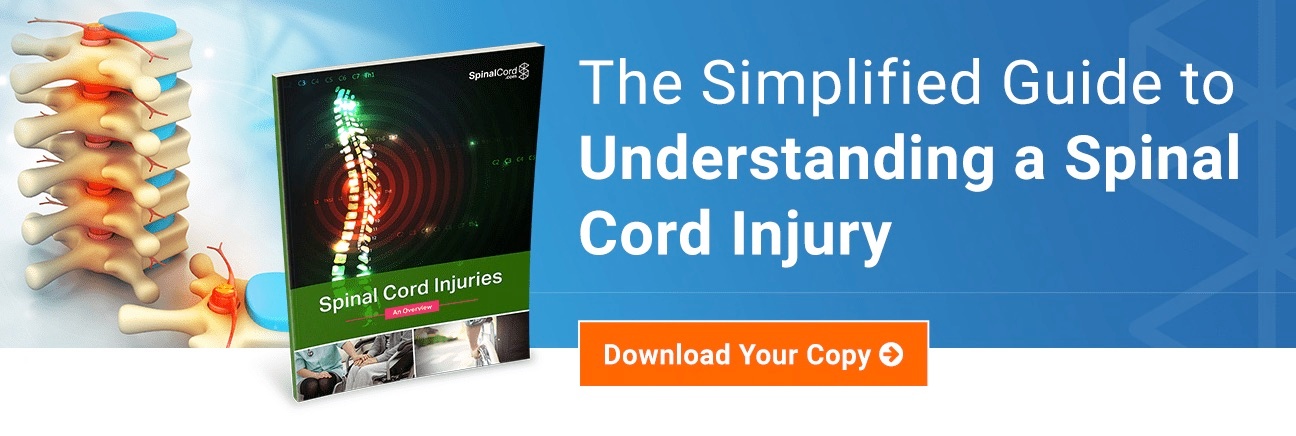You Can Move out on Your Own, and Here's How
There are a lot of people out there who have never lived alone, and I'm not talking about wheelchair-users; I'm talking about millions of people in this world. This includes my mom, my sister, my brother and several of my friends. Many people are simply not comfortable with the idea of living alone. They’re too scared and they’re not even paralyzed.
If you can’t move over 75% of your body then you might have a real reason to be scared of living alone, but even then, many people with severe paralysis live alone. It's always a good thing to try to do, even if it's not something you want to do for the rest of your life. If you can prove to yourself that you indeed can live on your own without your parents or others meddling, it's a great feeling, especially after you’ve come home from the hospital and feel nothing like your old self-independence-wise.
Accessible Housing
But there’s been a change. Over my 25 years of being paralyzed, I have seen a shift in the push to get people with paralysis to live on their own. In many parts of the country, they encourage people to move home with family, to have roommates or to live in group homes. Some are even forced to live in nursing homes. This is all dependent on the Medicaid laws in each particular state.
In Minnesota, there is a lot of accessible, lower-income housing available in one-bedroom units. Many people, after becoming paralyzed in the upper-Midwest, will move to Minnesota to take advantage of these apartments if they have nowhere else to live. Not everyone has a family that can afford to build them an accessible home. These apartments are a godsend to many. There is sometimes a waiting list, but it is not a very long wait. You must meet both income and disability qualifications, however, to get an apartment.
In other parts of the country, it can be more difficult finding low income accessible housing. A great source in most states is Independent Living Centers. Most major cities have them and they’re staffed by disability experts who can show you lists of all the accessible housing available in the city, or where to find it.
Bathrooms
Many people need a roll-in shower, and in many places this is simply not available. You can either buy a condominium and install one at an expense, or you can get a shower chair that has a base that extends over a traditional bathtub and makes most regular bathrooms, as long as they’re big enough, accessible. While it costs over $1,700, it is still an inexpensive solution to making a bathroom accessible. It’s Go Mobility’s Commode Shower ‘n Tub Chair.
Kitchens
If you cannot find an apartment or home with a kitchen that is 100% accessible, you can buy a mini fridge, a hot plate, and a toaster oven and set them on a table that you can roll under which allows you some semblance of independence to cook. While this isn't HGTV perfect, this is a great low-budget solution that enables many to bypass completely inaccessible kitchens. Counter-top grills are also fantastic and easy-to-use.
Bedroom
Many people need a hospital bed to move their head and feet since they won’t have anyone in their home overnight to help them. If you need a hospital bed or an adjustable bed in order to live on your own, look to see if your insurance will pay for a twin hospital bed. If you want something larger, you will have to pay for it out of pocket. There is a cheap alternative, however, to making most beds into adjustable beds. The product is called the Mattress Genie. It is an inflatable wedge with a remote control that you slide under any mattress to rise the head area up/down, and it can work on beds of all sizes.
Personal Care Assistants
One of the hardest things about living alone is finding caregivers that you like and are reliable. This is key to living alone if you need assistance with your daily cares. Unfortunately, many states are experiencing PCA shortages. There are many places to look if you are having a hard time finding caregivers. Always post your PCA job ad on Craigslist, Care.com, Indeed.com and on any Facebook PCA groups that may be in your area. Other great places to post are on school job sites and church websites. Contact them to see if they will post your job.
If you feel like you need more assistance on how to live on your own or if we missed anything you need answered, please contact us in the comments below. We know it can be an intimidating life event, but it can be done with the right planning. We wish you success in your independent living quest!
Stay Updated on Advancements On Traumatic Brain &
Spinal Cord Injuries
About the Author





